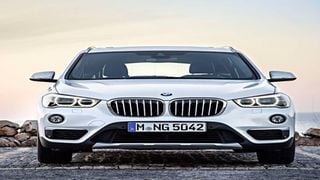
BMW-X1
| PoolDN2
Premium
Help me decide: On my list is the BMW X1, Mazda CX-5, Honda CRV, the Nissan Skyline and Toyota Crown
I am planning to buy my first car, but I am unable to decide which to go for. At first I was considering the BMW X1, Mazda CX-5 and HONDA CRV, and then began thinking about the Nissan Skyline and Toyota Crown. Would you kindly give your expert view of these options based on reliability, power maintenance, fuel consumption and any other important issue that I should consider before buying?
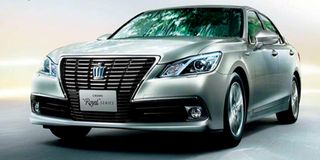
Toyota Crown.
Hi,
Reliability: the BMW is out, closely followed by the Nissan. The Toyota and the Honda battle for supremacy.
Power: well, this depends on what engines the Toyota and the Nissan are slinging. The Crown can be had with anything from a four cylinder to a V8. The Nissan may or may not have a 3.5-litre V6. The rest? Not so much.
Maintenance: the BMW is out, again. The CX-5 is not a sure bet. The CRV is. The Toyota will not surprise you, the Nissan might, the surprise in question not being a good one.
Fuel consumption: pick a battle. You either want power or you want economy. You rarely have the opportunity to enjoy both unless you are talking hybrids, which you aren't. That said, economy will mostly boil down to how and where you drive, but let me put it this way: the smaller the engine, the better the economy, but only up to a point. Depending on the body type and mass, small engines can actually be counterproductive and they end up consuming more, paradoxically. Again, that said, the Honda is probably the most economical or the Mazda. Don't place any bets here.
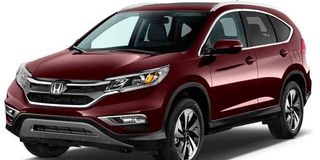
Honda CRV.
Other important issues: you are trying to choose between a trio of crossovers and a pair of saloons. Pick one niche based on your needs or your wants, whichever takes priority. Between the two saloons, you can never go wrong with the Toyota. From the list of crossovers, take the Mazda if you like driving and good design, take the Honda if you want to play it safe.
Which SUV would you go for? The Mazda CX5, Subaru Forester or Toyota Vanguard
Thanks JM for the very informative and well-presented facts on cars. I have been considering three SUV/Crossovers, the Mazda CX5, Subaru Forester and Toyota Vanguard 2014 or newer, how do they compare in the following departments: Handling, build, comfort, reliability, maintenance and fuel economy? I am moving from a 2003 Toyota Mark 2 Grande, which is serving me very well. Secondly, why is Subaru moving away from turbo chargers and settling for NA 2.0 and 2.5lt? Thirdly, what is the future of symmetrical turbo chargers?
Thanks
Douglas
Hi Douglas,
Handling: Subaru
Build: Subaru
Comfort: Mazda, maybe. This is subjective.
Reliability: Toyota
Maintenance: Toyota
Economy: Mazda, maybe
Is Subaru moving away from turbocharging? I have no idea about this. Last I checked they still made turbo cars. Also, symmetrical turbochargers? I have not heard of these either.
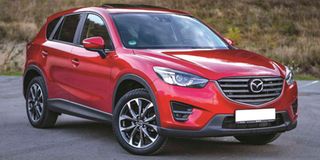
Mazda CX5.
I’m not ready to let go of my Toyota Corona 1995, not just yet…
Hi Baraza
Thanks for the great work you are doing, it’s good, very good. I’m seeking your advice on two issues:
1) I have a 1995 Toyota Corona (manual) that I have used for the last 15 years. I have traversed with it many parts of Kenya, the odometer reads over 300,000km and counting. I service it religiously when time comes and it has never given me any major problems, just the usual change of shocks, bushes, tie rods, stabilisers, fan belt and timing belt. Lately, I have noted that the exhaust has been emitting more smoke than usual, especially in the morning. Oil top-ups has also increased. My local mechanic, who has been with it for all those years advises me to shop for a secondhand engine and replace the current one. The vehicle is still strong and I would like to keep it, what other enhancements do I need to do to keep it going for longer?
2) As a possible replacement to the Corona, I am looking for a Subaru Impreza WRX or STi (manual). I am a great fan of Subarus, especially the older models (Legacy and Impreza) I have a working budget of between Sh700,000 and Sh1million .
Yours sincerely.
H Mbugua
Hi Mbugua,
Long question, short answers.
1. Like I have advised another reader somewhere within this column, check your valve seals along with the piston rings. If it starts looking like too much work, follow your mechanic’s advice and replace the mill. If you want to keep the vehicle longer, just stay on top of maintenance and don’t flag. At that age and mileage, proper care becomes more and more crucial.
(Answers to questions nobody asked: my BMW clocked 340,000km then stopped counting because of a missing gearbox switch. That was back in 2018. I suspect the car has soared past the 400,000km mark by now, but there is no smoke and the power could never be better. The trick is TLC: tender, loving care.)
2. For that money, just get a WRX. You may or may not get an STi for that outlay, but if you do, perhaps you will be looking at a mechanically unsound vehicle, or something that has been in a crash.
What’s the deal with the Lexus RX
Dear Baraza,
I am an enthusiast of your column. I have noticed that the number of Lexus RX cars have increased on the roads, the RX270, RX350, and the 450h.
Please enlighten me on their robustness, power, stability, fuel consumption, cost of parts. I would like to particularly acquire the RX350 and keep it for quite some time, which means there will come a time when changing most of the suspension parts will become necessary.
Regards
Kaka
Hello Kaka,
If you mention robustness, perhaps you shouldn’t be looking at a Lexus. As far as power goes, the higher the numerical value in the name, the more the power, so the RX450h is definitely superior to the RX270.
Fuel consumption? Go for the weakest car here, which is the RX270. The RX450h is a hybrid which theoretically should make the fuel economy stellar, but for some reason, Lexus hybrids are not as economical as they may seem. They can be surprisingly thirsty.
Cost of parts? The name says it all: Lexus. Yes, it is a Toyota and it uses Toyota parts which are generally inexpensive, but the Lexus-specific hardware will not be cheap. Then, now that you say you are keeping suspension parts in mind, I can’t help but ask: where do you plan to drive this car?
Which takes the trophy? The Mitsubishi Fuso FI or the new Isuzu FRR?
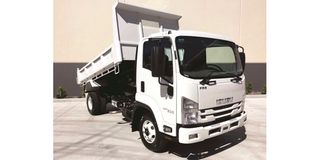
Hello,
I want to know which truck is best between the Mitsubishi Fuso FI and new Isuzu FRR.
Hello,
Just like you, I’d also like to know which truck is better than the other. I know both trucks replace aging hardware and they introduce developmental upgrades such as turbocharging, intercooling, downsizing and lower cylinder counts which should make for good fuel economy, but there has to be one which is better than the other. I may be biased because I had a Fuso FI for the Great Run, and my film director who was trailing the truck said the performance is otherworldly. Interesting. Also, inconclusive. Once I have a go at both trucks and have a word with my #TruckLife colleagues who deal with these vehicles on the daily, I will have a more definite response.
(Answers to questions nobody asked: in this 9.9-ton GVW truck class, the only new age vehicle I have driven - very briefly - is the new UD, what used to be called Nissan Diesel. It’s called the Croner if you hate letters and numbers, or the MKE180 if you like such designations, and it replaces the noisy, thirsty MKB210. It too suffers from cylinder and capacity castration palliated by turbocharging and intercooling, so you may want to include in your list of 10-ton trucks
I’d like to increase the ground clearance of my Toyota Allion 1.8
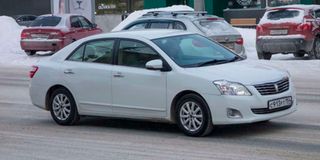
Toyota Allion
Hello Baraza,
I appreciate a lot the information you share on motoring.
I wrote sometime back seeking advice on which car I should buy for my birthday gift between the Subaru XV and 1.8 Toyota Allion. Well, the latter won. I am back again seeking advice on how to increase the ground clearance of the vehicle without compromising on safety and voiding insurance cover.
Regards
Constantine
Constantine (Emperor?)
Well, it seems you were not completely forthcoming with your needs when you made me do the comparison, did you? You never mentioned that you needed clearance, otherwise I’d have sent you the Subaru way. In fact, just for that, here’s your answer: Sell the Allion, buy an XV and insure the XV. Yea, you do that. You’ll be both safe and covered, and have ground clearance.
That aside, the world of insurance is made of shifting goal posts. There are two ways of increasing clearance:
1. Fitting bigger tyres: this tends to gear up the driveline, affecting acceleration and messing with the speedometer settings, but the degree of adjustment is so small as to be negligible. This might be the “safer” and “insurance friendly” way to go, but boy, will your car look awkward or what?
2. Fitting taller suspension: using taller coils and shocks will raise the car, but this affects the c-of-g making the vehicle wobbly, and it affects the steering geometry. Both of these compromise the safety of the car. Installing on-standard suspension is considered modification, and if recent news items are anything to go by, last I heard, insurance companies were turning their backs on modified cars...
Most likely, your valve seals are worn out…
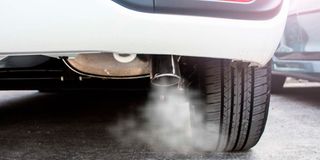
My car is producing a lot of smoke when I start the engine, but after a few kilometres, it is okay, what could be the problem?
Matore Isaya
There is an oil leak coming from the cylinder head. Most likely your valve seals are worn out. When the car is parked, oil leaks into the cylinders through the worn out seals then when the engine is cranked, the leaked oil is combusted, which explains the origin of the smoke. After a few kilometers, the oil that had leaked into the cylinders is all burnt up, which is why there is no more smoke.
Check your valve seals.





